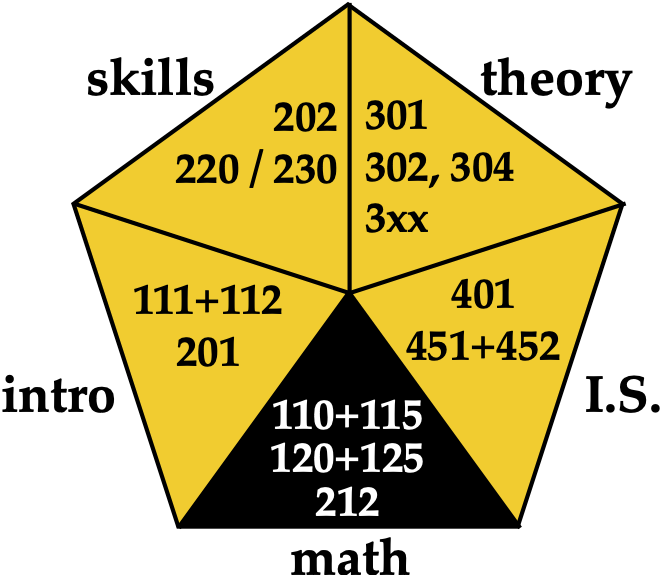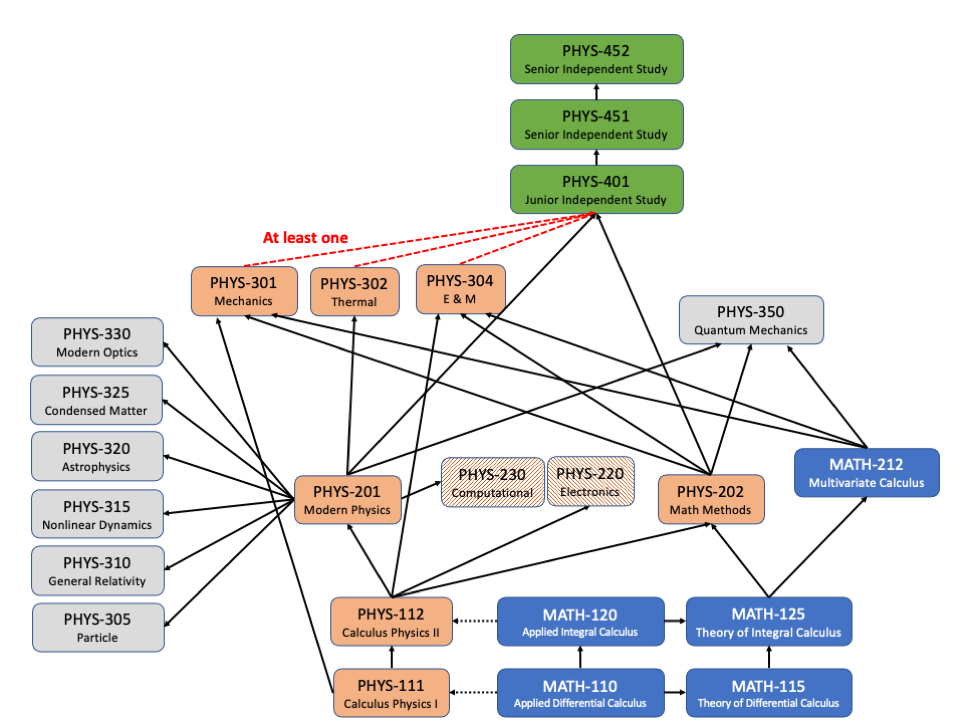
Formally, the Physics major requires 15 courses:
- MATH 110+115 & MATH 120+125 & MATH 212 (3 semesters of introductory Mathematics)
- PHYS 111 & PHYS 112 & PHYS 201 (3 semesters of introductory Physics)
- PHYS 202 & PHYS 220 or PHYS 230 (2 semesters of skill courses)
- PHYS 301 & PHYS 302 & PHYS 304 (3 semesters of advanced Physics)
- PHYS 3XX (1 semester of advanced Physics elective)
Information can also be found on the official course catalogue website for Physics major and Physics minor.
The two-semester Calculus Physics sequence PHYS-111 & PHYS-112 is necessary to major in Physics. It is best taken the first year, although one can still complete the major if the sequence is taken in the second year.
The two half-semester Calculus Mathematics courses MATH 110+120 must be taken at least concurrently with the Calculus Physics courses PHYS 111+112.
Those students considering graduate study in Physics should also take PHYS-350 (Quantum Mechanics), MATH-211 (Linear Algebra), and the two-semester, introductory Chemistry sequence CHEM-111 & CHEM-112, and as many advanced Physics courses as can be scheduled. Good choices for other Mathematics classes are MATH-221 (Differential Equations) and MATH-327 (Numerical Analysis).
Those students considering astronomy or astrophysics as a career should major in Physics and take PHYS-104 (Astronomy of the Solar System), PHYS-105 (Astronomy of Stars and Galaxy), and PHYS-320 (Astrophysics).
PHYS-103, PHYS-104, PHYS-105, PHYS-106, PHYS-107, and PHYS-108 do not count toward a Physics major (except by special permission of the department).
The laboratory and classroom components are closely integrated in Physics courses with a laboratory and must therefore be taken concurrently. The course grade and the laboratory grade will be identical and are based on performance in both components; the relative weight of the two components will be stated in each course syllabus.
Physics majors cannot use the pass/fail (S/NC) grading option for the required courses, and the department recommends that they not use it for any course in Physics, Mathematics, or Chemistry.
Only grades of C– or better are accepted for the major or minor.
Physics majors planning to get a minor in mathematics need to take an additional math course beyond the six otherwise required for the math minor. College-wide policy requires that at least four courses for the minor do not count toward any other major or minor. Because the half-semester courses MATH 110 + 115 + 120 + 125, and MATH 212 are required for the physics major, students need to take four additional math courses in order to minor in math.

